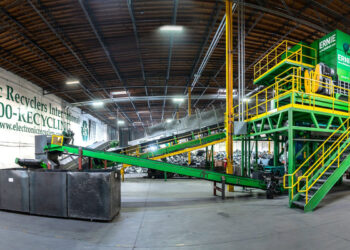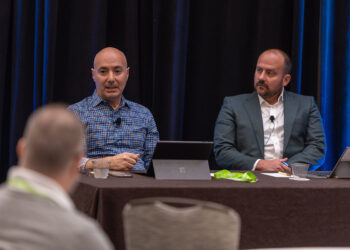IT asset management company OnePak recently began documenting the carbon footprint of every asset shipment, with an eye toward providing a way to offset that carbon output.
The Boston-based company on Feb. 17 announced the initiative, which OnePak framed as a way “to provide carbon-neutral asset recovery logistics.”
OnePak provides a variety of logistics services, picking up and shipping loads of used IT equipment to ITAD vendors.
“Going forward, an element of Carbon Offset Management Services will be built into every service OnePak provides,” the company stated in the announcement. “For example, much like a fuel service charge that is common in the logistics industry, OnePak will be reporting a Carbon Offset Cost for each pickup.”
With the carbon value of each shipment calculated, OnePak will then offer clients a way to “offset” those emissions. The company is working with Nori, which describes itself as a “carbon removal marketplace.” Companies can buy “carbon removals” through Nori, currently priced at $15 per metric ton of carbon.
Carbon removal refers to a variety of methods of removing carbon from the environment, through ecological or industrial means, or a combination of both. For example, Nori identifies afforestation – creating forests or stands of trees where they didn’t exist before – as a natural method of carbon removal. An industrial method is direct air capture, using machines to extract and concentrate carbon dioxide into various products.
A hybrid method example is using “biomass to remove carbon dioxide, generate energy at a power plant, and produce gaseous emissions which can be captured and stored underground,” according to Nori.
OnePak, which has been active since 2005, says its long history equips it to provide these carbon data points for the reverse logistics sector, which can be “fragmented and difficult to manage, even without the challenge of measuring its emissions.”
“If we hadn’t spent the last 15 years investing in a technology ecosystem that digitally connects all the stakeholders in these complex transactions, we would never have been able to accurately calculate and report on the environmental impact, but here we are, and now we can,” said Steve Andon, CEO of the company.
Other players in the IT asset management space have brought the carbon offset concept into the sector in different ways. In 2017, Canadian ITAD provider Compugen began offering carbon credits to its clients, connected to Compugen’s refurbishment of those devices. Retiring devices for reuse would partially offset the manufacturing carbon output associated with purchasing new devices, the company stated.

























